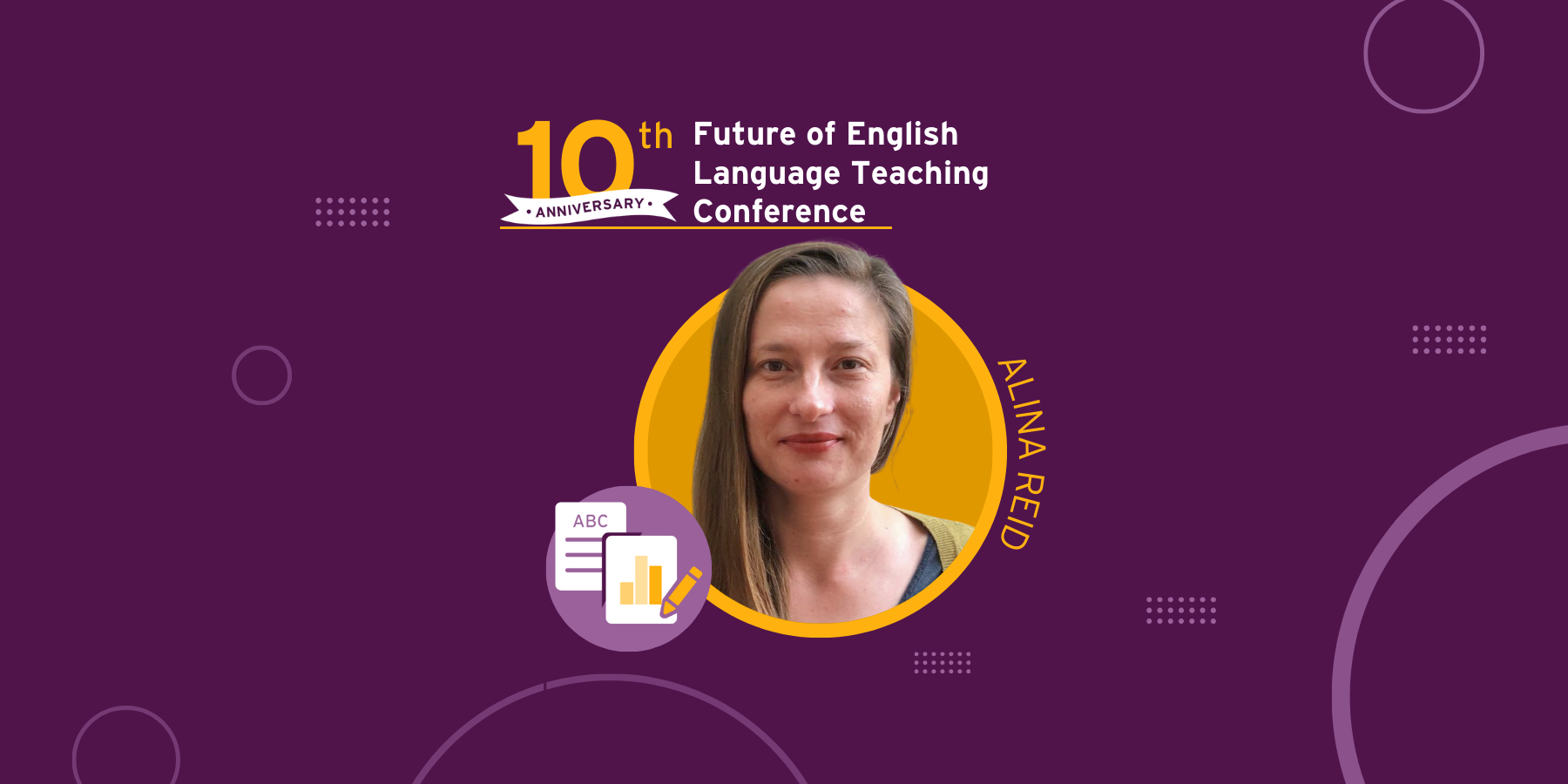Writing at university in the digital age: aligning institutional expectations with student needs and abilities through effective language assessment

Writing at university in the digital age: aligning institutional expectations with student needs and abilities through effective language assessment
At this year’s Future of English Language Teaching (FoELT) conference, Alina Reid explored the gap between students’ writing abilities when they arrive at university and the expectations held by institutions and teachers. Her research shows that students often overestimate their own writing abilities—especially in areas such as tone, formality and appropriate content in communicative writing, and critical engagement with sources in academic writing.
Drawing on insights from 90 international students and 50 EAP teachers across 20 UK universities, along with validation work for Trinity’s ISE Digital Writing module, Alina highlighted where expectations, abilities and self-perception diverge, and how assessment can respond more effectively.
Alina Reid is a Language Test Developer at Trinity College London. She is an experienced ELT professional with a background in English language teaching and teacher training across Spain, Vietnam and the UK. She holds an MA in Language Testing from Lancaster University, and her interests include EAP assessment, authenticity in performance-based testing, rating scale design, and rater training and standardisation.
What the research examined
The research compared student and teacher perspectives on:
- what kinds of writing students are actually required to do at university
- how important students and teachers perceive these tasks to be
- how prepared students feel for academic and communicative writing
- what difficulties most commonly occur
The study focused on two key areas:
- communicative digital writing (emails, messages, forums, short institutional communication)
- academic writing (source-based reports and essays requiring critical engagement with other texts)
Where the biggest gaps appear
Two notable discrepancies emerged across the data.
-
Communicative writing
Students generally felt confident in their ability to communicate through emails and digital messages. However, teachers reported consistent issues with:
- tone and politeness
- formality and register
- clarity and relevance of content
Students tended to overestimate their skills in these areas, particularly in relation to writing appropriately for academic or institutional audiences.
-
Academic source-based writing
Both groups recognised source-based writing as central to academic success. But while most students reported feeling confident synthesising sources, teachers observed continued difficulties with:
- critical reading
- selecting relevant information
- integrating and referencing sources appropriately
- forming a clear, supported argument
The confidence gap between students’ self-assessment and teachers’ observations was particularly visible in this area.
Communicative writing: expectations vs reality
Teachers emphasised that successful communicative writing requires:
- concise, purposeful content
- correct level of formality
- appropriate tone depending on the audience
- logical organisation
Grammar and vocabulary were seen as less decisive than pragmatic appropriacy. Many students, however, were unaware of these expectations and often produced messages that were abrupt, overly informal, or unnecessarily long.
Academic writing: why source use is the main challenge
Teachers identified critical engagement with sources as the strongest determinant of academic writing quality. Students’ difficulties were linked to:
- limited experience with integrated source-based tasks
- previous preparation focused on isolated, opinion-driven essays
- uncertainty about how to evaluate, synthesise and reference sources
This gap between what students have practised and what universities expect makes source-based writing a particular challenge.
What this means for assessment
Alina argued that effective assessment should:
- evaluate both communicative and academic writing
- focus on pragmatic appropriacy and purposeful communication
- assess academic writing through integrated, source-based tasks rather than standalone essays
This helps ensure assessment reflects real academic expectations and makes performance requirements clearer for learners.
How ISE Digital addresses the gap
The ISE Digital Writing module includes two task types closely aligned with university demands:
- written online communication: short, purposeful writing assessing tone, register and content
- writing from sources: writing that requires selecting, synthesising and critically integrating multiple source texts
These tasks were positively rated by stakeholders for authenticity and relevance. The assessment criteria emphasise content, organisation, style and source integration, with language accuracy included but not over-weighted.
Key takeaways
|
Theme |
Key idea |
|
Clear discrepancies
|
Students often overestimate their abilities; teachers report ongoing issues with tone, formality and content in communicative writing, and with critical source use in academic writing. |
|
What universities value |
Content, organisation, appropriacy and source integration matter more than surface-level grammar and vocabulary. |
|
What to assess |
Meaningful assessment must include both communicative and academic writing, with academic writing assessed through integrated source-based tasks. |
|
Authentic alignment |
ISE Digital aligns with real university expectations and supports better preparation for contemporary academic writing demands. |
Final thought
Alina’s central message is that assessment should reflect what students genuinely need to succeed at university. By targeting pragmatic skills and requiring thoughtful use of sources, we can help close the gap between institutional expectations and student ability, supporting writing development that transfers meaningfully into academic study.
